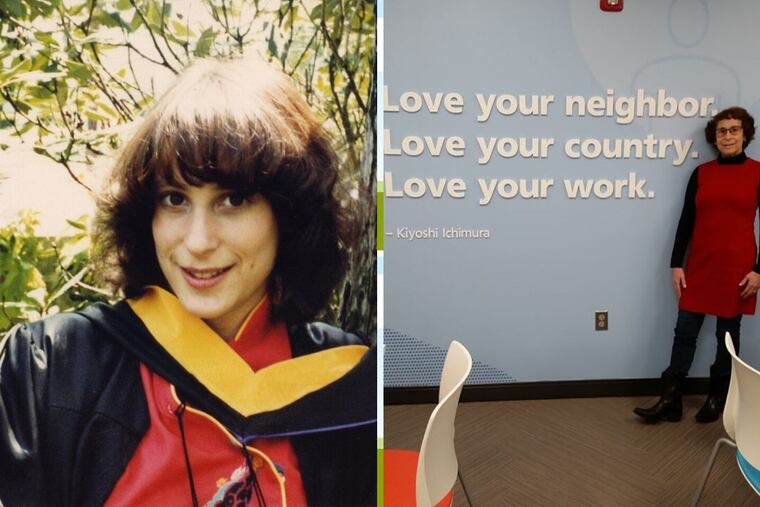‘I was shot at point-blank range and left for dead’ | Perspective
There is no joy in sharing my story as a victim-survivor. But it is my story, and I hope it helps someone.

I was shot at point-blank range and left for dead in a workplace robbery in Delaware on Oct. 2, 1980. The .22-caliber bullet went right through me; I have entry and exit wounds.
Getting shot, and witnessing a murder and an attempted murder, is terrifying and traumatizing. My life was spared that day, but a colleague was murdered. I spend every day seeking feelings of safety and security, still, even as I approach the 40-year mark since it happened.
For the first 10 years of my recovery I couldn’t even speak about the incident without crying and breaking down as a terrified victim of a violent crime. For the 39 years since being wounded, I’ve learned to live with the victimization, find a place to put it in my mind so I’m not constantly terrorized by the memories. I’ve also learned to accept the fact that I survived when my colleague didn’t, and put one foot in front of the other and soldier on. I’ve had to remember that I am blessed, and I have so much to live for: I work in an industry I’m passionate about, am auntie to four glorious nieces, am blessed with a 91-year-old, feisty mother, and will celebrate 33 years of marriage in May.
But it took decades for those blessings to outweigh my fear and reluctance to revisit what happened. While all this was going on in my mind, I still could not talk about it. When I thought about what I’d say, I sounded to myself like a crazy person: I heard a gunshot but couldn’t believe that was the sound. Time slowed down and I devolved into shock, got cold. Sounds muffled, lights blurred and diffused. I felt a calmness in the center of the terror. I thought I could hear my heartbeat and pulse, loud.
Being a shooting victim isn’t a topic for conversation unless you have a doctor’s appointment. There isn’t much opportunity to share. For a long time I felt there was no reason to talk about it — no one would benefit from learning this fact about my past, and I certainly didn’t benefit from sharing this horrifying experience.
Then, something happened to change my view of surviving the shooting. Our country started seeing more stories of random youths killing schoolchildren, escalating to synagogue and church congregants being murdered during services. Was it my mission now to share my experience, since every one of us now seems to be a witness to gun violence?
Then last year, my niece’s friend, a young woman only 18 years old, witnessed a terrifying shooting at close range. She was sitting next to someone in a parked car at a scenic overlook in West Virginia who got shot.
Upon learning about this act of violence from my family, I knew I could actually help her understand her feelings of vulnerability and terror. Because violent crimes often happen suddenly, with no warning, the victims lose a sense of safety in their surroundings. We feel as if something deadly could happen at literally any second, because we’ve witnessed it.
Since this young woman’s incident, I’ve been sharing my story of victimization and survival and my search for a feeling of safety — with a victim-survivor Facebook group, with colleagues, and in other essays. I know I might sound crazy to some people, but that’s just too bad for me and them.
Now I talk about the shooting, the victimization, and the search for security. I’d like to talk anytime, anywhere to Pennsylvania’s U.S. senators and representatives who take money from the NRA, which I believe helps perpetrate the carefree, I’m-not-responsible attitude Americans have about guns.
Make no mistake: Being a victim of violent crime has no benefits or upside. There is no joy in sharing my story as a victim-survivor. But it is my story. I know what I saw that day, I know what I felt, heard, smelled, and thought. I know talking about it won’t undo the murder and two attempted murders, or give a young man back his father and a woman back her husband. I know you really can’t judge a book by its cover, because you don’t know what someone has been through.
But now, I do hope my story helps others going through the same thing know they are not the only one. They may be surprised by who else understands what they are experiencing.
Being a survivor is part of my fabric now — I’ve been changed by that forever.
Robin Gorneau lives and works in the Philadelphia suburbs, where she considers herself to be an average woman with an above-average spirit.
―
Have you experienced a change of mind or heart? The Inquirer opinion team is always looking for essays on those shifts. You can submit to opinion@inquirer.com, and read others in this series here: